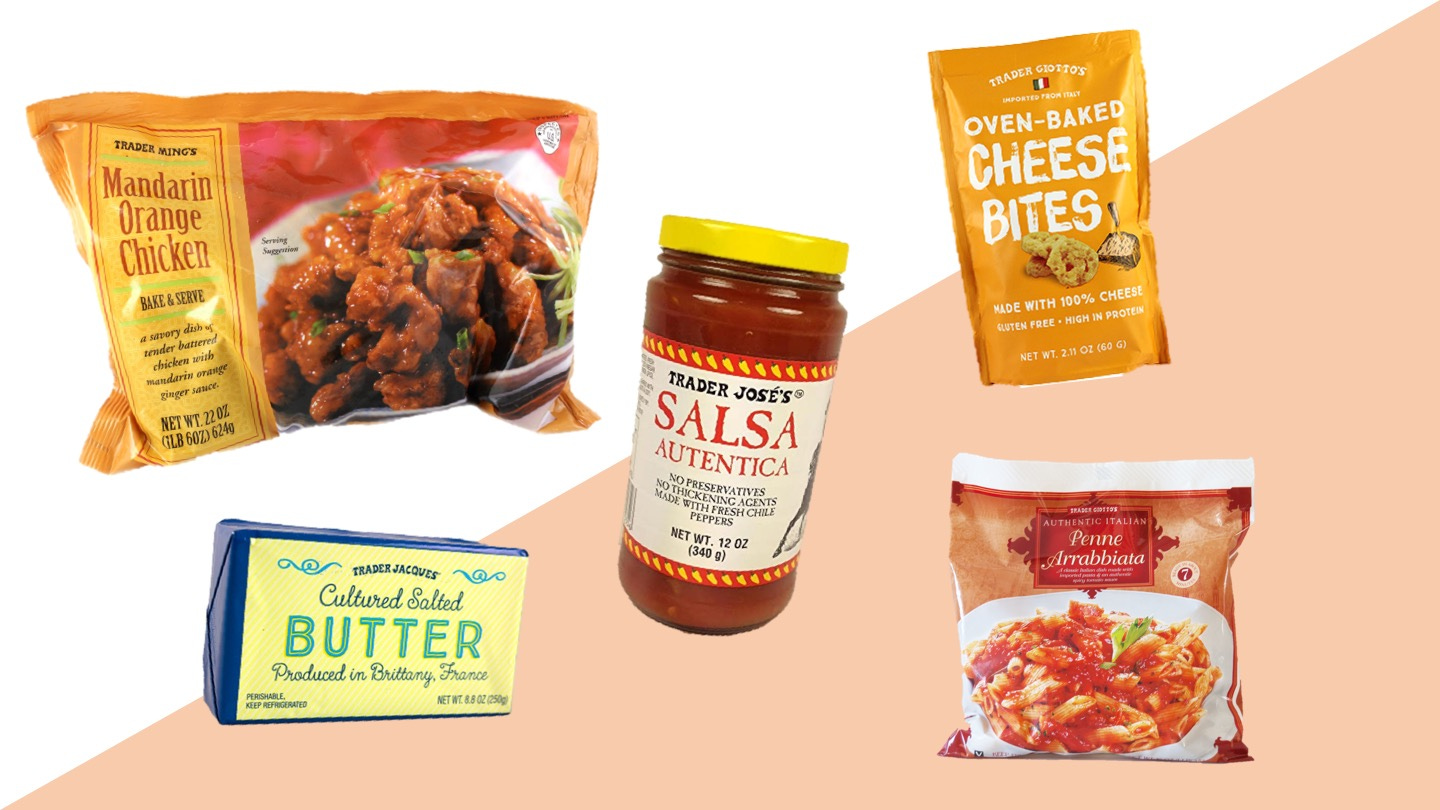Unpacking Trader Joe's exoticizing alter egos
Issue 185: Trader José, Trader Giotto, Trader Jacques, Trader Ming, Trader Joe-San, and his brethren need to go.

Hello! Welcome to Nosh Box, a lunchtime-ish food newsletter.
Read yesterday’s dispatch: Wait — is the food system broken? Or are we?
If your kitchen cupboards look anything like mine, they’re likely filled with items from Trader Joe’s, the grocery store with offbeat but high-quality store-branded products whose corporate birthplaces are famously played close to the vest. Trader Joe’s already took a hit in my book with its lackluster response to COVID-19, both before and after a TJ’s employee died from the disease in New York — and I think it’s time, as we talk about reconsidering the racist origins of brand names, that we discuss how this plays out at TJ’s.
So if you, like me, commonly trade with Joe, you may have noticed that certain products are branded as “Trader Joe’s,” but Italian foods are branded as “Trader Giotto’s,” Mexican foods are “Trader José’s,” French foods are “Trader Jacques,” Chinese foods are “Trader Ming’s,” Japanese foods are “Trader Joe-San’s” — you get the picture. I imagine it was meant to be cheeky, but it lands as deeply exoticizing.

A really interesting petition on Change.org sums up the problems with this, starting with the founding inspiration for the stores themselves. Let’s unpack it.
The company’s website describes the origin of the first TJ’s store as such:
The store had a nautical theme and it was run by people who were described as “traders on the high seas.” At the time, Joe had been reading a book called “White Shadows in the South Seas,” and he’d been to the Disneyland Jungle Trip ride, and it all just…coalesced. To this day, Trader Joe’s Crew Members consider themselves “traders on the culinary seas” and are known for their bright, tropical-patterned shirts and for generally being nice, helpful, and well informed.
(Quick note: White Shadows in the South Seas is a 1919 book (and later silent film) that fictionalizes the horrific treatment of Polynesian pearl divers by white colonial traders. After speaking out against a particularly cruel trader, the main character (who is white) is shipwrecked and washes up on an uncolonized island, where he encounters a “primitive” native tribe and is hailed by them as a deity before realizing they, too, will be corrupted the influence of white traders.)
In the Change.org petition I mentioned, Briones Bedell (who, food scholar Emily Contois notes, is a high school senior (!!!)), writes:
The Trader Joe’s branding is racist because it exoticizes other cultures - it presents “Joe” as the default “normal” and the other characters falling outside of it - they are “Arabian Joe,” “Trader José,” and “Trader Joe San.” The book, White Shadows in the South Seas is racist because it perpetuates the myth of the “white god” and the “noble savage” stereotypes. It becomes even more racist in context because the founder of Trader Joe's said that he was inspired by this book in some way when creating his company, a book which shows traders’ exotification of non-Western peoples turned into violent exploitation and destruction. The Disney Jungle Cruise is racist because it displays caricatures of non-Western peoples alongside exotic animals, as an attraction at a theme park to be gawked at.
The common thread between all of these transgressions is the perpetuation of exoticism, the goal of which is not to appreciate other cultures, but to further other and distance them from the perceived “normal.” The current branding, given this essential context, then becomes even more trivializing and demeaning than before. What at first seems, at worst, insensitive, further is called into question.
The full petition is here. It’s small (161 signatories as of this writing) but I think Bedell does a good job of encapsulating the issue.
I’ll leave you with this: About a year ago, Hasan Minhaj did a little “Deep Cuts” bit on Patriot Act where he took a question from the audience and riffed on this topic:




The article and petition use the term exotification to describe trader Joe's branding. The dictionary definition of exotic is "originating in or characteristic of a distant foreign country". With that in mind, all of those Italian, French, Mexican, Chinese, Japanese, etc foods are indeed exotic to America (where Trader Joe's is owned, operated, and has all of it's locations). Is this a bad thing? Absolutely not. It's wonderful that American culture embraces aspects of other cultures, and it's wonderful that we have easy access to foods inspired by exotic cuisines. Also, I don't see how it's racist to use brand names that more closely resemble names in the food's countries of origin. I'm thinking there are few people named "Joe" born and raised in Italy, France, Mexico, China, or Japan. Using your same arguments related to White Shadows in the South Seas, wouldn't it be more racist to brand cuisines of all cultures as "Trader Joe's" because your imposing a white man's title on aspects of the culture of other countries, and portraying a white person's name as being superior? People really need to stop looking for excuses to use the word "racist". Our society has enough real problems as it is. Let's not try to invent new ones.